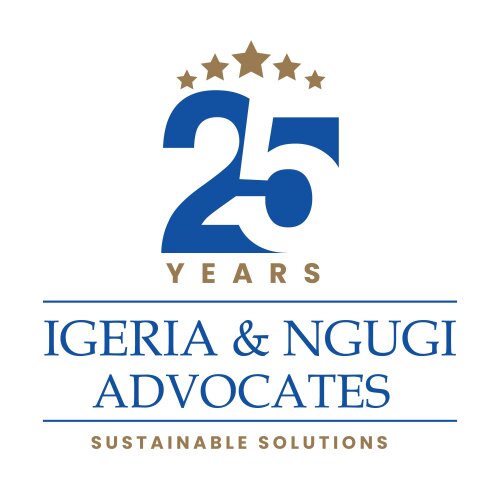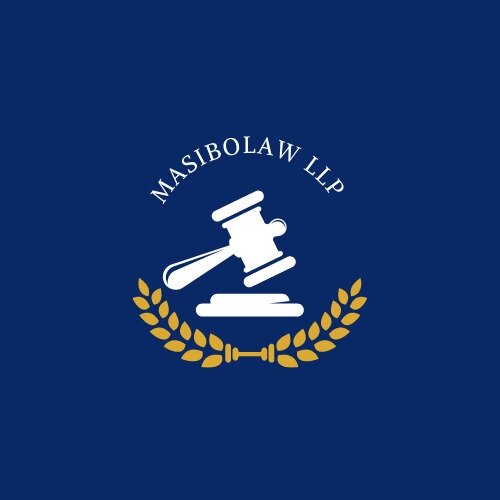Best Information Technology Lawyers in Kenya
Share your needs with us, get contacted by law firms.
Free. Takes 2 min.
Or refine your search by selecting a city:
List of the best lawyers in Kenya
About Information Technology Law in Kenya
Information Technology (IT) in Kenya plays a pivotal role in the country's economic development and digital transformation. With innovations in mobile banking, e-commerce, and digital governance, Kenya has emerged as a leader in Africa's digital landscape. The laws governing IT in Kenya are designed to ensure data protection, cybersecurity, intellectual property rights, and the regulation of electronic transactions. These legal frameworks aim to create a safe, efficient, and thriving digital environment for individuals and businesses alike.
Why You May Need a Lawyer
There are several scenarios where legal assistance may be required in the IT sector in Kenya:
- Resolving disputes related to software development contracts or service level agreements.
- Negotiating and drafting contracts for IT services, software licenses, or hardware procurement.
- Addressing issues of data privacy and protection, especially in compliance with the Data Protection Act, 2019.
- Responding to cybersecurity incidents and managing the legal implications of data breaches.
- Protecting intellectual property, including copyrights, patents, and trademarks related to IT products and services.
- Understanding the legal aspects of e-commerce operations and digital marketing regulations.
Local Laws Overview
Key legal frameworks relevant to IT in Kenya include:
- Data Protection Act, 2019: This legislation addresses the collection, handling, and storage of personal data, aligning with global standards like the GDPR.
- Computer Misuse and Cybercrimes Act, 2018: This law outlines offenses related to unauthorized access to computer systems, cyberbullying, and identity theft.
- Kenya Information and Communications Act: Governs electronic communications and sets licensing requirements for telecommunications services.
- Copyright Act: Protects the intellectual property rights of creators in the digital space.
Frequently Asked Questions
1. What is the role of the Communications Authority of Kenya in IT?
The Communications Authority of Kenya regulates the telecommunications and ICT industry, ensuring service providers comply with the law and protecting consumer interests in electronic transactions.
2. How does the Data Protection Act affect businesses in Kenya?
Businesses in Kenya must ensure they handle personal data responsibly, with adequate measures for consent, data security, and compliance with international data protection standards.
3. What is required for a valid e-commerce contract?
E-commerce contracts in Kenya must adhere to the principles of contract law, including offer, acceptance, consideration, and intention to create legal relations, even if conducted electronically.
4. Are electronic signatures legally recognized in Kenya?
Yes, the Kenya Information and Communications Act recognizes electronic signatures as valid, provided they meet certain security and authentication standards.
5. How can I protect my software in Kenya?
Protection for software can be achieved through copyright registration and agreements that safeguard your intellectual property from unauthorized use or distribution.
6. What actions can be taken in case of a data breach?
Organizations must promptly report data breaches to the relevant authorities and affected individuals, cooperate with investigations, and take steps to mitigate impact.
7. Can I be held liable for defamatory content posted online?
Yes, individuals and organizations can be held liable for publishing defamatory statements online, subject to the Defamation Act and other relevant laws.
8. What are the penalties for cybercrimes in Kenya?
Penalties vary depending on the offense, but they can include hefty fines and imprisonment, as outlined in the Computer Misuse and Cybercrimes Act.
9. How does the government regulate mobile money transactions?
Mobile money transactions are regulated to ensure consumer protection, market stability, and compliance with anti-money laundering standards.
10. What are the legal requirements for a startup in the IT sector?
Startups must comply with company registration, tax obligations, data protection laws, and any sector-specific regulations to operate legally.
Additional Resources
For further assistance, consider exploring the following resources:
- Communications Authority of Kenya: Regulates the ICT sector and provides guidelines for stakeholders.
- Office of the Data Protection Commissioner: Offers information and guidance on data protection practices.
- Kenya ICT Action Network (KICTANet): An inclusive multi-stakeholder platform advocating for better ICT policies.
Next Steps
If you require legal assistance in the IT sector, consider the following steps:
- Identify your specific legal needs and gather relevant documentation.
- Research and consult with a lawyer specializing in IT law to understand your rights and obligations.
- Take proactive steps, such as implementing compliance measures and drafting necessary contracts, to mitigate future legal issues.
- Stay informed by engaging with relevant industry events and updates to maintain compliance with the evolving legal landscape.
Lawzana helps you find the best lawyers and law firms in Kenya through a curated and pre-screened list of qualified legal professionals. Our platform offers rankings and detailed profiles of attorneys and law firms, allowing you to compare based on practice areas, including Information Technology, experience, and client feedback.
Each profile includes a description of the firm's areas of practice, client reviews, team members and partners, year of establishment, spoken languages, office locations, contact information, social media presence, and any published articles or resources. Most firms on our platform speak English and are experienced in both local and international legal matters.
Get a quote from top-rated law firms in Kenya — quickly, securely, and without unnecessary hassle.
Disclaimer:
The information provided on this page is for general informational purposes only and does not constitute legal advice. While we strive to ensure the accuracy and relevance of the content, legal information may change over time, and interpretations of the law can vary. You should always consult with a qualified legal professional for advice specific to your situation.
We disclaim all liability for actions taken or not taken based on the content of this page. If you believe any information is incorrect or outdated, please contact us, and we will review and update it where appropriate.
Browse information technology law firms by city in Kenya
Refine your search by selecting a city.

















